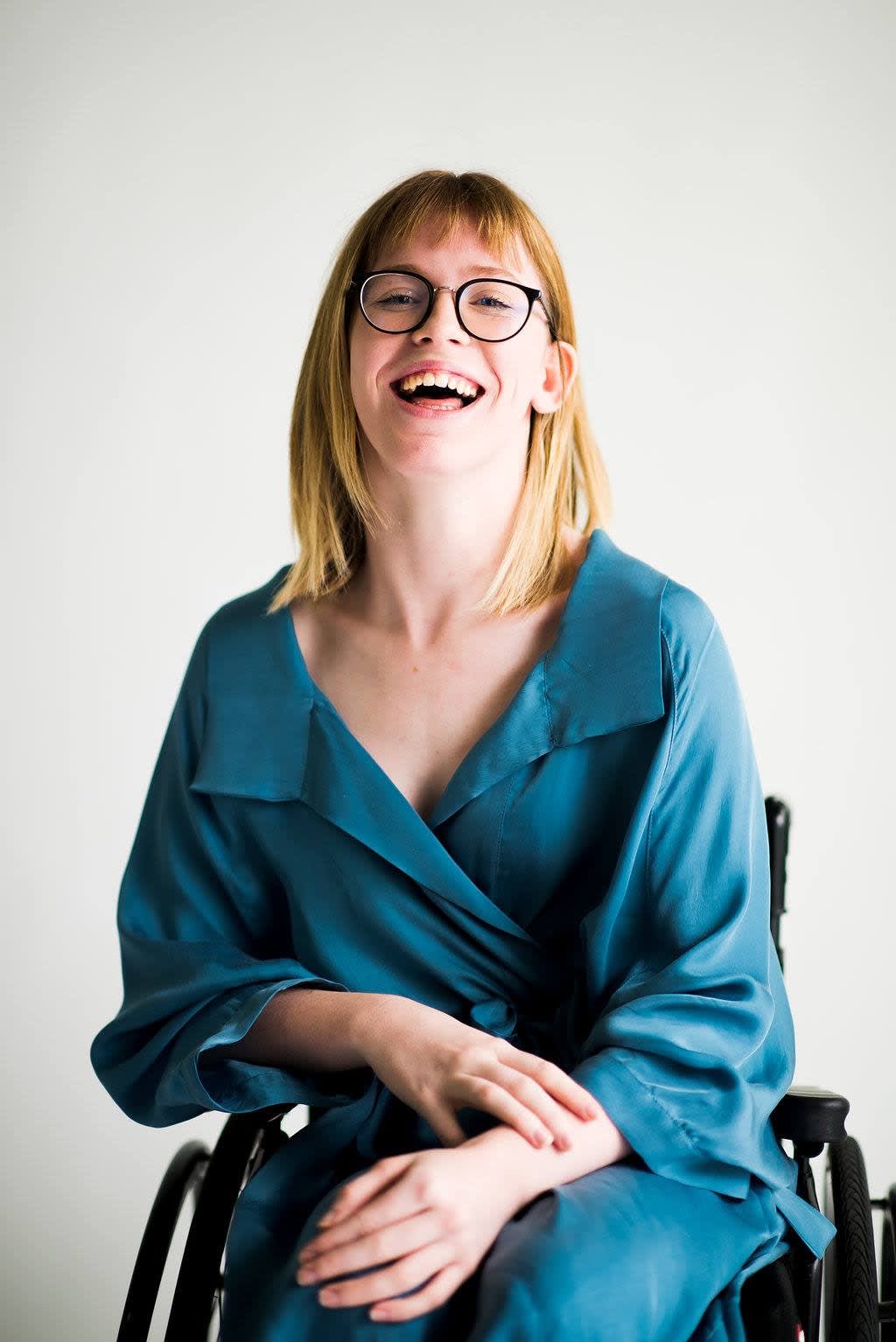
Grace Stratton, the woman behind new online accessible fashion shopping platform All is For All.
By Carolyn Enting
When you meet Grace Stratton it’s instantly apparent why this remarkable young woman was a 2017 Young New Zealander of the Year nominee and has been welcomed by the New Zealand fashion community.
Inspiring, charismatic, articulate, confident and clever as well as stylish, the law student and fashion fan held the room captive at the All Is For All: The Accessible Fashion Revolution presentation as part of inaugural Fashion in Focus event at Showroom 22, Auckland on March 20.
Stratton, 20, is the woman behind All is for All, a new online shopping platform that caters to all, including those with a disability.
When she blogged at New Zealand Fashion Week 2017, she covered the event from the perspective of a fashionista in a wheelchair. As a lifelong wheelchair user and follower of fashion, she also found online shopping frustrating because garment descriptions carried way too little information, so she’s done something about it.
“I bought a pair of pants online only to find out they had a clasp and a zip at the back in a really awkward place and a tie. So if I wanted to wear those pants I’d have to ask my Mum and Dad to help me put them on,” says Stratton. “I started to think about how we could foster independence of disabled people. There is this image that disabled people are dependent and need help, but we don’t. We only actually need your help when we’re in spaces and situations that are not designed with us in mind. So if we can provide more information about that garment, then I will be independent.”
Items posted on All is For All come with detailed descriptions, such as if there are domes on the back pockets (these can be uncomfortable if you sit in a wheelchair); photographs of a how a garment looks when you are sitting (very important); zip placement (good to know as that can often be the difference between dressing yourself and having someone help you do it).
“We’re not asking designers to change their designs, nor do we claim to have all the answers,” says Stratton. “We’re starting with New Zealand fashion and from there inviting and supporting all industries to look at their online presence from an accessibility angle.”
Wearing a fashionable two-piece Ruby pinstripe pant suit at the All is for All launch, Stratton shared that she’s never felt like she was unable to do anything. “I just had to figure out a different way of doing those things”.
With All is For All – believed to be a world first – she has done just that by presenting an online shopping site that simply provides the missing details.
Garments are presented on models with access needs (along-side able-bodied models); with detailed garment descriptions and a custom built search engine, which address different access needs.

All is For All is starting by addressing only some access needs and will work directly with the disability community to implement further accessible technology. By taking a human-centred approach to their web design, AIFA hopes to create the best online experience possible for the disability community, whose voice is not often heard.
All is For All has been created with the help of Angela Bevan from global communications firm SweeneyVesty. The launch was hosted by fashion and lifestyle PR agency Showroom 22. Speakers included The Lucy Foundation co-founder Robbie Francis, Imogen Zino, Red Nicolson and (via video) Grace Jun from New York’s Parsons School of Design, who spoke to her work with Open Style Lab, an MIT-funded project which facilitates accessible design.
The New Zealand designers who are All is For All’s initial partners include Zambesi, Working Style, Wynn Hamlyn, Stolen Girlfriends Club, Penny Sage and Ruby with others soon to be announced.

“When I started looking at accessibility in fashion as it stands I thought why should I not have Kate Sylvester or Karen Walker? Why should my wheelchair make me any less valid as a consumer. Providing more information about [the garments] means disabled people have equal access to those garments,” says Stratton.
“One in four people in New Zealand have an access need and every time you incorporate someone with a disability, you are talking to at least one person out of four. Disabled people are valid and important consumers and accessible fashion doesn’t mean that fashion has to change.”